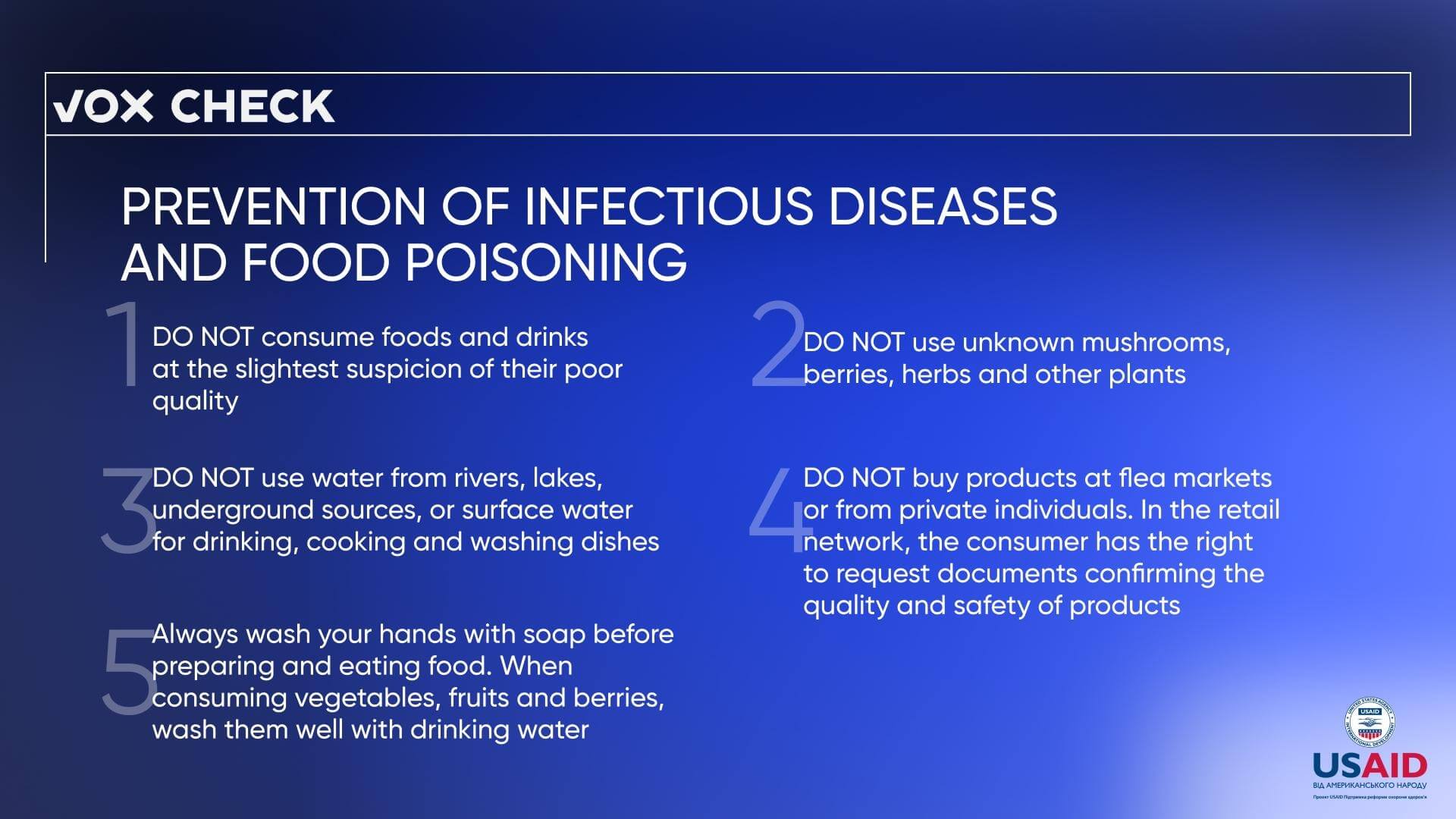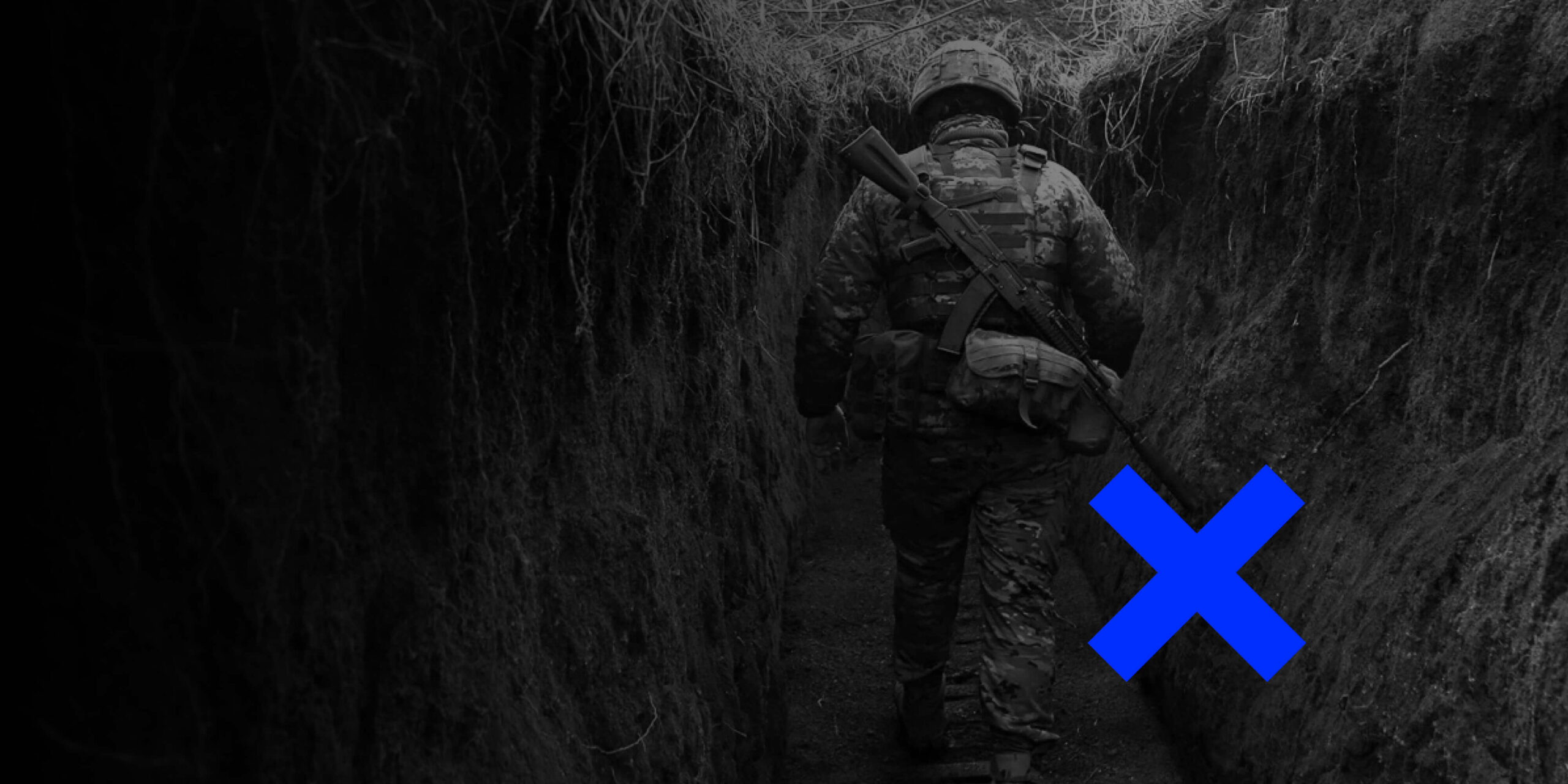Messages from the State Production and Consumer Service appear on the Internet from time to time that dangerous products imported from other countries have been discovered in Ukraine. Poland often appears in such reports. By distorting official information, propagandists promote false narratives that Poles are deliberately exporting poisonous food to Ukraine.
With the support of the USAID Health Reform Support project, VoxCheck analyzes and refutes public health narratives spread in the information space of Ukraine, Belarus, and russia on a weekly basis.
Misinformation: The Poles tried to poison Ukrainians three times by bringing dangerous cookies, nuts, and chicken into the country
Pro-Russian channels spread information that the Poles are again trying to poison Ukrainians. So, chicken with salmonellosis was imported from Poland to Ukraine. Before that, Polish poisonous cookies and nuts were already imported to Ukraine. There was also a case that in Ukraine Italian rice with cadmium was on sale because it was “rejected” in Italy.
What’s the reality?
The State Production and Consumer Service did receive reports on the export of dangerous products from other countries, including Poland. However, in no case was there a deliberate attempt at poisoning.
Let’s analyze the cases in chronological order. On January 12, the regional offices of the State Food and Consumer Service received a message from the European Rapid Alert System for Food and Feed (RASFF) that in the cookies of the Romanian manufacturer Ro Star S.A., which were exported from Poland to Ukraine, was found a high content of acrylamide. That is, it was not about Polish but Romanian cookies. Moreover, Poland during the official control of the State Health Service discovered that in some batches of cookies the level of acrylamide exceeded the norm and submitted the relevant information to the European Commission. The commission, in turn, notified all members of the network about the violation. Such an algorithm is provided by the system for EU countries to act quickly and in a coordinated manner in response to a health threat caused by food or feed.
Acrylamide is a chemical component that is formed during food preparation and can accumulate in the body, causing cancer. Certain carbohydrate-rich foods (bread, potatoes, coffee, cookies and cakes, crackers and crisps) form an actylamide compound when fried or baked at temperatures above 120°C, when sugar and starch react with asparagine, an amino acid, one of from protein components.
Also, on January 19, it became known about the import of a dangerous batch of peanuts, in which the level of aflatoxins (B1 and the total amount of B1, B2, G1 and G2) exceeded the norm. It was exported from Egypt through Poland to Ukraine. This time, Germany discovered the problem. However, again, it is not even about Polish products: the Polish company acted only as an intermediary between companies from Egypt and Ukraine. And it did this because direct export to Ukraine is impossible due to Russia’s blockade of seaports.
Aflatoxin-B1 is a poisonous substance for humans and animals that is secreted by some types of microscopic mold fungi. It negatively affects human immunity, can cause malignant tumors and cirrhosis of the liver.
On February 9, RASFF informed the State Production and Consumer Service of Ukraine about the detection of Salmonella enterica ser. Enteritidis in chicken meat (MMO) exported from Poland. Latvia discovered the bacterium in a batch of exported chicken on January 17 and notified the European Commission. In general, the producer supplied meat not only to Latvia and Ukraine but also to Angola, Equatorial Guinea, Liberia, and the Comoros Islands. All recipient countries have been notified to withdraw the received product from the market.
Salmonella bacteria cause the infectious disease salmonellosis. Symptoms of salmonellosis: fever, headache, weakness, malaise, abdominal pain, nausea, vomiting, and diarrhea. The disease can run in a mild form. However, in some cases, disease-related dehydration can be life-threatening.
And finally, on February 17, RASFF informed the State Production and Consumer Service of Ukraine that an increased content of cadmium was found in rice for risotto exported from Italy. Finland was the first to discover the excess of cadmium on February 3. After this investigation, the countries that also buy or resell rice from this producer, and Italy itself, conducted an investigation. The Ukrainian receiving company supplied rice from Poland, so the Ukrainian side was informed of the problem on February 17, when the Polish inspection results were ready. In other words, poisonous rice was not deliberately imported to Ukraine, it was exported throughout Europe and sold in Italy itself. On the contrary, after the threat was detected, the Ukrainian side was immediately informed (Poland provided the results of the investigations to the European Commission on February 17, on the same day Ukrainian services received a notification from RASFF) to promptly remove the dangerous product from store shelves.
Cadmium is a natural heavy metal that can accumulate in living organisms. Cadmium enters the human body mainly with food and water, although there are other sources of this trace element, for example, tobacco smoke. Cadmium has a toxic effect on the kidneys, bone and respiratory systems. It is classified as a carcinogen dangerous to humans.
Such cases happen all the time and are resolved according to the following algorithm: the State Production and Consumer Service receives a message from the RASFF system and notifies consumers and customers of a potential threat. The latter must withdraw the product from the market within a specified period (usually up to 3 days). In addition, sometimes dangerous substances are also found in Ukrainian products. For example, in January, it was reported about the excessive content of cadmium in peas, which Ukraine supplied to Poland. And in February, chlorpyrifos was found in fodder wheat grain from Ukraine, which was again supplied to Poland. According to the logic of the propagandists, it turns out that the Ukrainians also “deliberately poison the Poles”. However, such conclusions are absurd.
In fact, the thoroughness of inspections speaks of the EU’s interest in maintaining food safety. In the pan-European market, of which Ukraine is also a part after the adoption of the Association Agreement, the following principles apply to the sale of food products:
- life and health of consumers must be protected as much as possible;
- products imported into the EU must meet the same requirements as products produced in the EU;
- the control system, instead of focusing on checking the finished product, is focused on risk;
- the market operator is responsible for compliance with safety requirements;
- ensuring hygiene and safety throughout the chain;
- preventive control and preventive safety assurance (HACCP);
- timely informing all involved parties about existing and potential threats through the RASFF system;
- traceability of products throughout the entire supply chain for timely withdrawal in the event of a threat to consumer health.
Source: Ministry of Health of Ukraine
This information piece was produced with the assistance of the United States Agency for International Development (USAID), provided on behalf of the people of the United States of America. This article’s content, which does not necessarily reflect the views of USAID, the United States Government, is the sole responsibility of Deloitte Consulting under contract #72012118C00001.
Attention
The authors do not work for, consult to, own shares in or receive funding from any company or organization that would benefit from this article, and have no relevant affiliations







